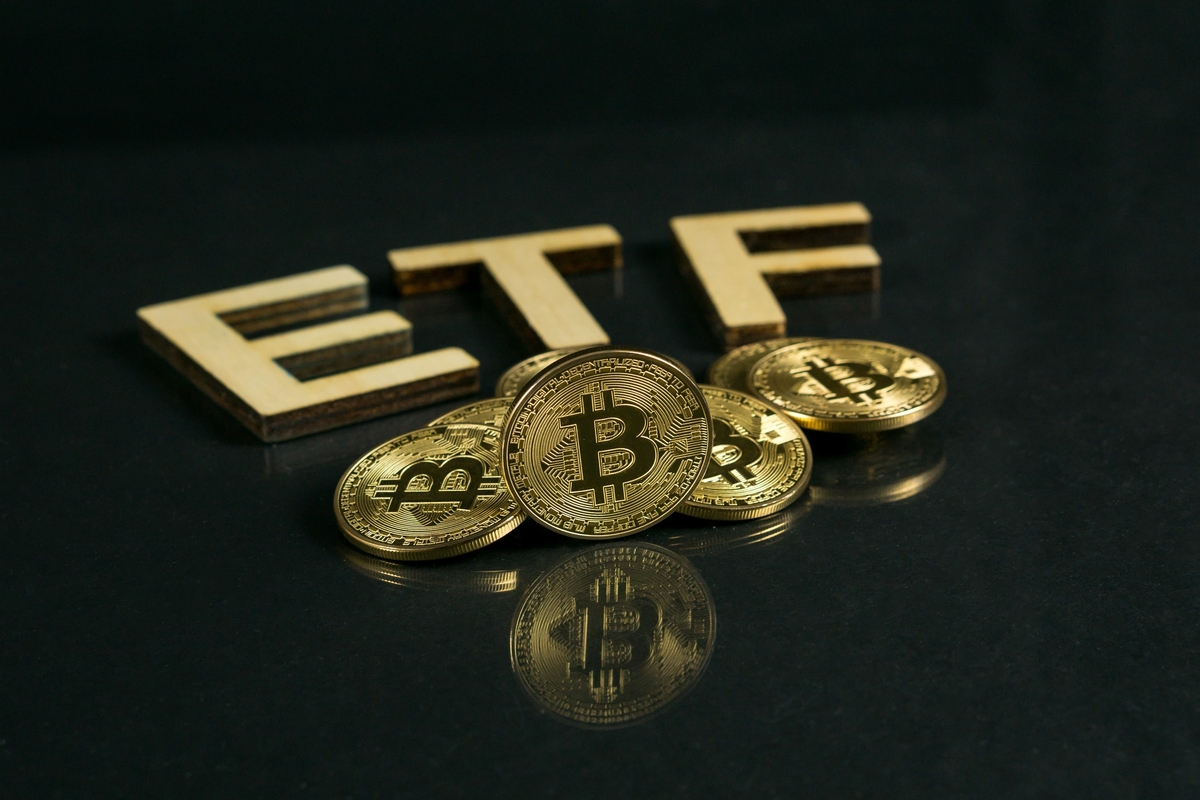Investor Caution Grows as Bitcoin ETFs See Unprecedented Outflows
24.02.2025 13:00 2 min. read Alexander Stefanov
Bitcoin ETFs in the U.S. have seen their largest two-week outflow since their introduction, with investors pulling over $1.14 billion amid mounting concerns over trade tensions between the U.S. and China.
This withdrawal, spanning the two weeks before February 21, set a new record, surpassing the June 2024 outflow of $1.12 billion when Bitcoin was priced around $64,000.
Marcin Kazmierczak, co-founder of blockchain oracle provider RedStone, noted that while ETF flows reflect institutional sentiment toward Bitcoin, short-term trends can be misleading. He argued that a broader perspective—spanning six months to a year—provides a more accurate picture, emphasizing that long-term net flows remain positive despite periodic sell-offs.
One of the primary factors behind the latest withdrawal surge appears to be the intensifying trade friction between the U.S. and China, triggered by new import tariffs.
Market participants are awaiting potential developments from an anticipated meeting between U.S. President Donald Trump and Chinese President Xi Jinping, though no confirmed date has been announced. Trump hinted that negotiations could lead to a new trade deal but refrained from offering a specific timeline.
Beyond trade-related concerns, other economic variables have also influenced the sell-off. Kazmierczak pointed to shifting expectations around interest rates, evolving regulatory landscapes, and overall market sentiment as significant drivers. Despite the recent selling pressure, major institutional investors such as the Abu Dhabi Sovereign Wealth Fund and Wisconsin’s Pension Fund continue to maintain substantial Bitcoin ETF holdings, signaling their confidence in Bitcoin’s long-term trajectory.
-
1
Has BTC Topped? Key Signals Suggest The Rally isn’t Over
15.07.2025 21:00 2 min. read -
2
Over $5.8 Billion in Ethereum and Bitcoin Options Expired Today: What to Expect?
18.07.2025 16:00 2 min. read -
3
Bitcoin Sparks Clash Between Mike Novogratz and Peter Schiff
13.07.2025 10:00 1 min. read -
4
Bitcoin Outlook: Rising U.S. Debt and Subdued Euphoria Suggest More Upside Ahead
11.07.2025 18:30 1 min. read -
5
Analysis Firm Explains Why Bitcoin’s Breakout Looks Different This Time
11.07.2025 15:15 2 min. read
Here is How Much Bitcoin Should Cost to Surpass Amazon, Apple, and Gold
As Bitcoin continues its steady ascent in 2025, comparisons with the world’s largest assets are once again gaining traction.
Bitcoin Stalls Below $120K as Markets Signal Late-Cycle Fatigue, Says QCP Capital
Bitcoin is treading water near the $120,000 resistance, with persistent bids around $116,000 offering a firm base—but failing to ignite fresh upside momentum.
Strategy Adds 21,021 Bitcoin at $117,000, Pushing Total Holdings Past $46 Billion
Michael Saylor, executive chairman of Strategy, has revealed that the company has acquired an additional 21,021 Bitcoin for approximately $2.46 billion, paying an average price of $117,256 per BTC.
Bitcoin Funding Rates Stay Elevated—Rally Ahead or Shakeout Coming?
As Bitcoin continues to consolidate above $100K, a critical market signal is flashing: BTC funding rates remain elevated, even as price action cools.
-
1
Has BTC Topped? Key Signals Suggest The Rally isn’t Over
15.07.2025 21:00 2 min. read -
2
Over $5.8 Billion in Ethereum and Bitcoin Options Expired Today: What to Expect?
18.07.2025 16:00 2 min. read -
3
Bitcoin Sparks Clash Between Mike Novogratz and Peter Schiff
13.07.2025 10:00 1 min. read -
4
Bitcoin Outlook: Rising U.S. Debt and Subdued Euphoria Suggest More Upside Ahead
11.07.2025 18:30 1 min. read -
5
Analysis Firm Explains Why Bitcoin’s Breakout Looks Different This Time
11.07.2025 15:15 2 min. read


